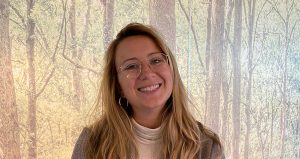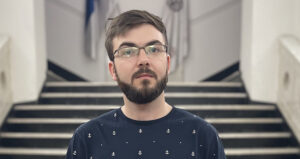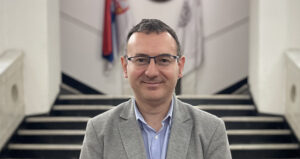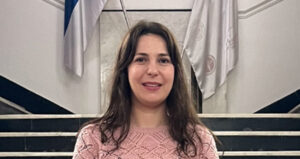Borko: “I want to create objects that imitate the natural system”
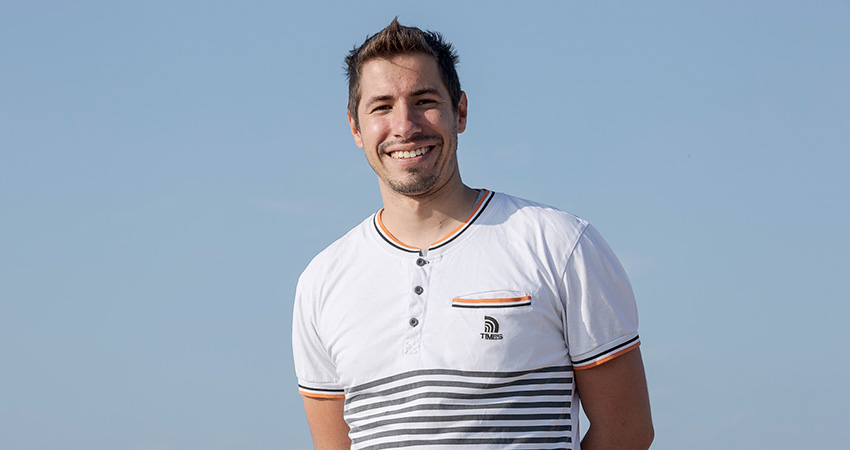
-
Editorial Team
Share article:
Borko Radivojevic from Serbia is participating in the second group of the European Junior Water Programme (EJWP). He is sharing his experiences on Water News Europe. He is enthusiastic about meeting international water professionals during the Programme. “As a civil engineer, I would like to see myself creating objects that fit much better into the natural system, that do not endanger it, but imitate it.”
What is your current work position?
“I currently work in my home town of Niš, Serbia, as a hydraulic engineer in Consult Biro, a family company that grows every day and is mainly engaged in consulting and projects of hydraulic structures. As a civil engineer, I do hydraulic computations, make 1D models for open channel flow, bridge and culverts hydraulics, and 2D models for performing floodplain mapping. I also use GIS software for different needs and design different types of water structures. I actually joined EJWP as a PhD student!”
What value do you aim to bring to your organization and career from your EJWP journey?
“Through my EJWP journey I want to create connections with people who work in the water sector, to see the mindset of people with different professions and take the best examples to advance intellectually and improve communication with colleagues in better achieving further goals.”
What has been your most valuable experience with EJWP so far?
“I see our live training week last month in The Hague and Delft, the Netherlands, as the most valuable experience at the moment, because I met colleagues that I’ve been working with online (because of the pandemic) for almost a year. This interaction contributed to a better communication between us, and created a team in which everyone is equal with a lot of support between us.”
What have you already learned or developed in knowledge or skills?
“The learning opportunities provided by EJWP are significant and different from the academic field. As a student, I thought only about technical solutions, but after finishing the first project ‘The Value of water’, it made me think in another direction and how to make people aware that in the future the availability of drinking water will be an issue. I have learned that collaboration between countries and sharing different experiences is very valuable for better achievement of goals.”
What are the benefits of an international network? And how are you building a water network with EJWP?
“Working with people around the world breaks down boundaries and allows us to communicate better, share knowledge and make better decisions. EJWP really makes it possible to connect with people in different professions and positions of the water sector. Each of us knows someone who is successful in some field and willing to share their experiences and knowledge with others.”
What can better-connected international water professionals mean for water sector organizations?
“International water professionals have a key role to play in raising strategic issues related to water and how important water is to everyone. We need to discuss at the international level in order to find better solutions in protection of water. With smart projects, we can raise awareness of people outside of our profession, thus involving them in the conservation of water as a resource. Climate change has a significant impact on water resources, so some countries face things unknown to them, and this type of organization allows sharing the acquired knowledge from countries that have already faced this type of issue.”
What did you study?
“I did my bachelor’s at the Faculty of Civil engineering and architecture at the University of Niš, in hydrotechnics. My master’s is from the University of Niš and the University of Natural Resources and Life Sciences in Vienna in Austria on river engineering. Now, I am a PhD student working to implement machine learning in flood risk analyses.”
Where and in which position would you like to be working in five years?
“Good and difficult question. As a civil engineer, I would like to see myself creating objects that fit much better into the natural system, that do not endanger it, but imitate it.”


